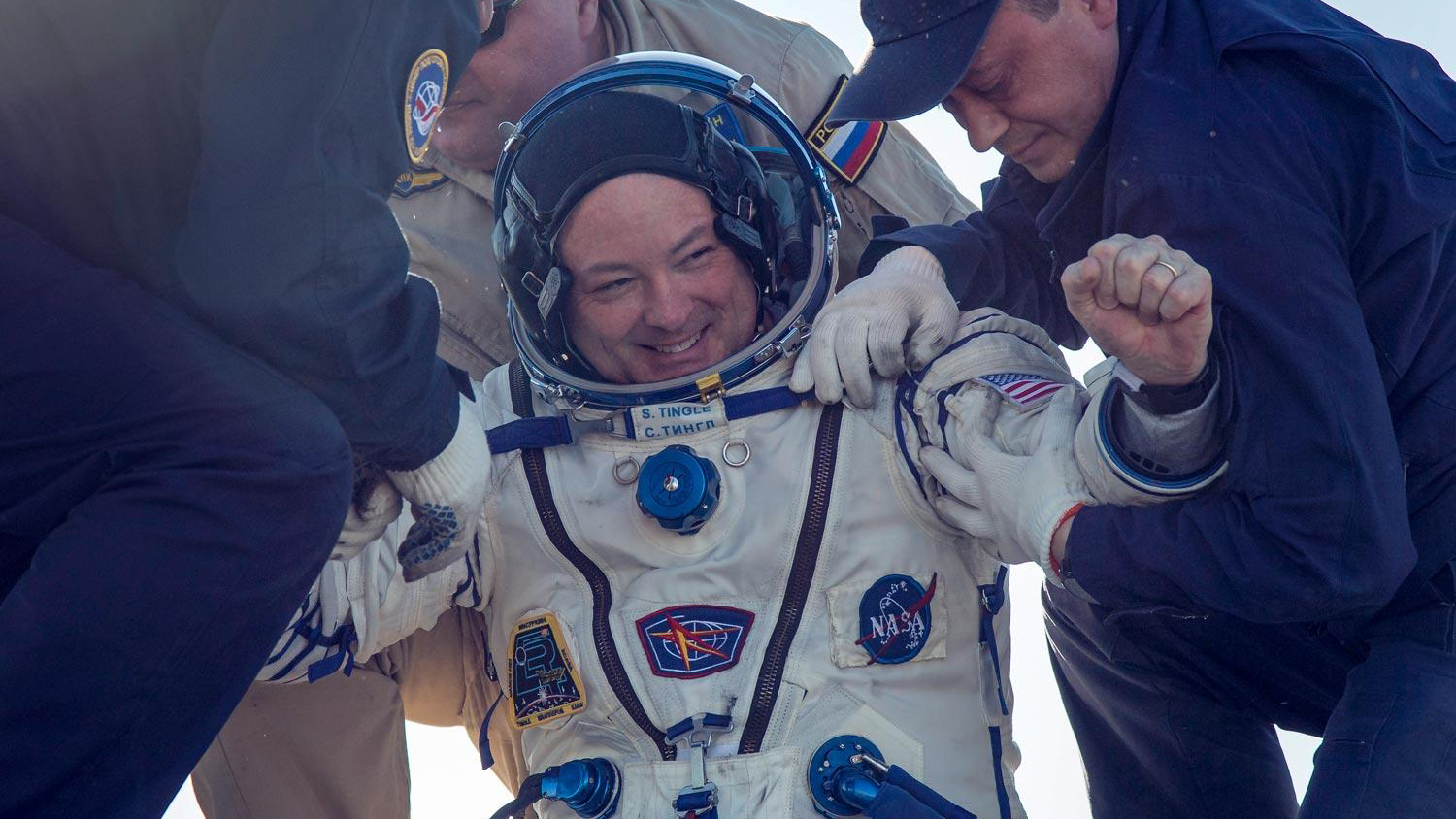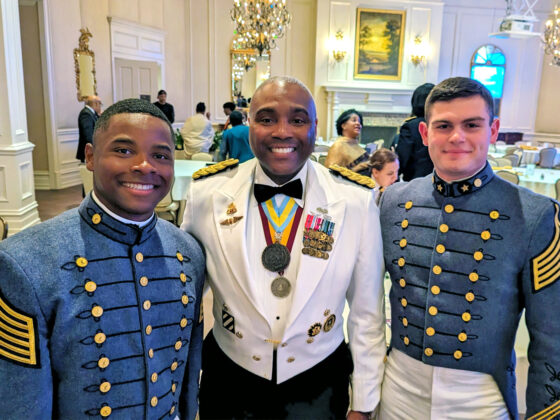The post is a reprint of an article by Dave Hendrick in The Darden Report.
Astronaut Scott Tingle (TEP ’15) landed safely back on terra firma 3 June, as his 168-day voyage on the International Space Station (ISS) concluded with a parachute landing in the desert of Kazakhstan.
The successful voyage represented the culmination of a lifelong dream and years of dedicated training for the Massachusetts native and decorated U.S. Navy pilot, who was selected as an astronaut in 2009 and completed Darden Executive Education’s The Executive Program during his NASA training.
Now back home in Houston and reunited with this family, Tingle said his nearly six months on the ISS were just as awe-inspiring as expected.
“As I told my kids, it’s like when you’re a child and you have a dream you could fly, but are always being told that humans can’t fly,” Tingle said. “Then one day you wake up when you are 50-something years old and you can fly — that’s what it was like.”
In space, Tingle had a hand in hundreds of experiments ranging from measuring the effect of gravity on bone marrow to research into plant growth in space. Tingle also conducted spacewalks outside of the station to work on equipment and participated in scores of educational events to help promote the NASA mission.
Despite the grandeur and oddity of the surroundings, Tingle said one develops a routine in space, rising at 6 a.m. to eat breakfast before a morning meeting to discuss any unusual situations that may have developed over night. Then, Tingle said he would begin to work on his tasks for the day, interspersed with an hour for lunch and dedicated time for a cardio workout and weight lifting. The days concluded with dinner and the occasional movie before turning in to try to get six to eight hours of sleep before doing it again.
Tingle said the experience afforded him the opportunity to constantly practice and hone his leadership skills.
“We had international crews — six members from three different countries, with different languages, different cultures, different ways of thinking of things — and we all had to work together to get the job done. Just being patient and allowing people to go through their growth process and to achieve their reward at the end of the day really came into play,” Tingle said. “Everything you learn about leadership and everything you learn about teamwork is in action up there and it’s on steroids times 10.”
Tingle said the energy management techniques he learned in TEP were also critical, given what he described as the intensity — physically and mentally — of the environment.
Tingle’s space work will continue from the ground, where he will work to share what he learned in space inside and outside of NASA.
“The message that I’d like to send to folks wondering about the experience is that human presence is going to expand throughout space,” Tingle said. “It’s very slow, but it’s going to happen and we can only do it as a race by working together with international cooperation and patience.”





